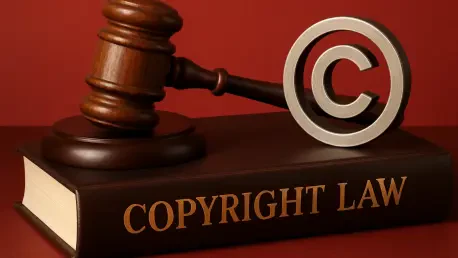In a digital landscape where software is as ubiquitous as electricity, a high-stakes legal battle between Microsoft and ValueLicensing, a software reseller, has captured the attention of the tech industry. This dispute, simmering for several years, revolves around the contentious issue of reselling perpetual software licenses and whether such practices infringe on copyright law. ValueLicensing claims that Microsoft’s restrictive contract clauses have crippled the second-hand software market, seeking £270 million in lost profits. Meanwhile, Microsoft has shifted its defense to argue that reselling licenses for products like Office violates its intellectual property rights. This clash not only questions the boundaries of software ownership but also tests the balance between corporate control and market competition, with ramifications that could reshape how software is valued and traded across Europe.
Legal Battle Unfolds in the UK
Shifting Defenses and Copyright Claims
The ongoing case before the UK Competition Appeal Tribunal has taken a dramatic turn as Microsoft pivots its legal strategy. Initially denying any misconduct, the tech giant now contends that reselling perpetual licenses for its Office suite infringes on copyright, classifying the software as a creative work under the Copyright and Information Society Directive rather than a mere program under the Software Directive. This argument hinges on elements like icons, fonts, and help files, which Microsoft asserts are original copyrighted material. The shift, noted as novel by Tribunal Chairman Justin Turner KC during a Preliminary Issues trial in September, has sparked intense scrutiny. If accepted, this stance could fundamentally alter the legal framework surrounding software resale, potentially dismantling a market that resellers argue is both lawful and competitive. The stakes are high, as a ruling in Microsoft’s favor might set a precedent that prioritizes intellectual property over market freedoms.
Implications of European Precedents
Contrasting Microsoft’s position is ValueLicensing’s reliance on established European legal rulings, particularly the UsedSoft case decided by the European Court of Justice. That landmark decision affirmed the right to resell used software licenses, providing a foundation for the second-hand market. ValueLicensing argues that its business model aligns with this precedent, promoting competition and affordability in software access. However, Microsoft challenges this interpretation by asserting that Office’s components, such as documentation, qualify as artistic or literary works deserving copyright protection. This dispute over classification—whether Office is primarily software or a creative work—lies at the heart of the case. A decision against ValueLicensing could undermine years of legal clarity on resale rights, while a ruling supporting the reseller might force Microsoft to reevaluate its licensing strategies, potentially facing significant financial penalties, including the £270 million claim.
Broader Impact on the Software Market
Industry-Wide Ramifications
Beyond the immediate parties, the outcome of this legal tussle holds profound implications for the broader software resale industry across Europe. ValueLicensing’s managing director, Jonathan Horley, has highlighted that the tribunal’s judgment could influence not only their £270 million claim but also related cases like the Wolfson class action, a separate multibillion-pound lawsuit against Microsoft over alleged market dominance abuses in the UK. A ruling that upholds Microsoft’s copyright argument might effectively dismantle the pre-owned software market, limiting consumer choice and driving up costs by restricting access to affordable second-hand licenses. Conversely, a decision favoring ValueLicensing could reinforce the legitimacy of resale practices, encouraging competition and innovation. This case, therefore, transcends a single dispute, serving as a litmus test for how software licensing and market dynamics will evolve in the coming years.
Balancing Corporate Interests and Market Freedom
Another critical aspect of this conflict is the tension between corporate intellectual property rights and the principles of a free market. Microsoft’s insistence that volume licensing agreements must be sold in full, not in part, adds another layer of complexity to the debate over resale rights. ValueLicensing disputes this claim, arguing it further stifles a legitimate market. At its core, the case questions whether software giants can leverage copyright law to control downstream distribution, potentially at the expense of smaller resellers and end-users. Stakeholders in the resale industry view the second-hand market as a vital counterbalance to monopolistic tendencies, ensuring affordability and access. As the tribunal deliberates, the decision will likely shape not just legal precedents but also the ethical and economic contours of software ownership, determining whether corporate protections or market liberties take precedence in this digital age.
Final Thoughts on a Pivotal Ruling
Reflecting on a Defining Moment
Looking back, the legal confrontation between ValueLicensing and Microsoft stood as a defining moment for the software industry. The arguments presented before the UK Competition Appeal Tribunal dissected complex issues of copyright law and resale rights, with Microsoft’s late pivot to a copyright-based defense marking a significant shift in the discourse. The clash illuminated how far-reaching corporate strategies collided with established market practices, as ValueLicensing fought to preserve a second-hand market underpinned by European legal precedents. Each side presented compelling cases, with Microsoft emphasizing the creative elements of its Office suite and ValueLicensing championing competitive access to software. The intensity of the Preliminary Issues trial underscored the gravity of the stakes, as both parties recognized the potential ripple effects across related lawsuits and industry norms.
Looking Ahead to Industry Shifts
As the dust settled on this pivotal case, attention turned to actionable steps for navigating the future of software resale. Industry players and policymakers alike awaited the tribunal’s judgment to assess whether copyright protections had redrawn the boundaries of software ownership or if resale rights had been reaffirmed. Companies in the resale space needed to prepare for potential shifts, possibly diversifying licensing models or advocating for clearer regulations to safeguard their operations. For software giants, the outcome offered a chance to refine intellectual property strategies without alienating consumers. End-users, often caught in the crossfire, stood to benefit from increased clarity on what they could buy or sell. Ultimately, the resolution of this dispute promised to guide the balance between innovation and access, ensuring that the digital marketplace evolved in a way that respected both creators and consumers in equal measure.









